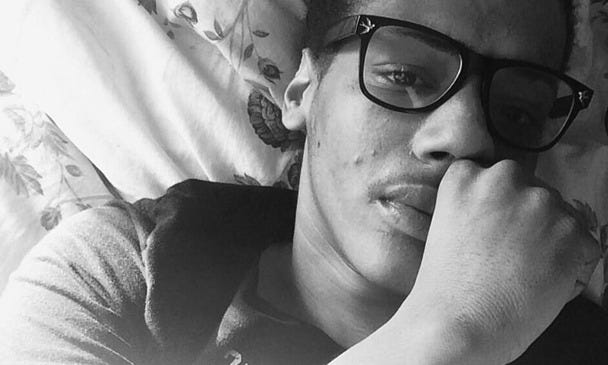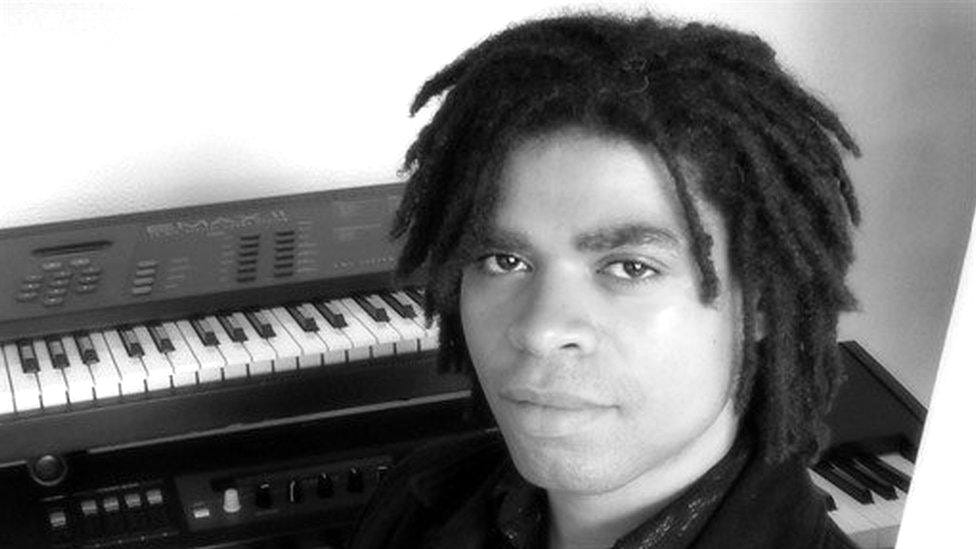Is kindness and empathy really so scary?
Abolition teaches us to lead with our shared humanity: why I confronted three men in north London.
Yesterday I cycled past three white men. They were holding on to an older Black man; agitated with him, gripping him hard, preventing him from walking away. One had his ear to a smart phone, while looking frantically around - presumably trying to find the name of the road. Of course, it was the Met Police on the other end of the call. Uncomfortable with leaving the older bloke in the custody of the three men I turned around.
Depending on who you ask, one of my best traits is my brawl mentality. The idea of squaring up to a group of men and publicly questioning their behaviour doesn’t phase me. Actually, confronting men about shitty behaviour is a hobby of mine - one that frequently gets me into trouble, but never seems to lose its allure. So, I did what I do and I asked them what the hell they thought they were doing holding an older man under duress; what exactly justified this?
“Lady don’t get involved. This has nothing to do with you. I am on the phone to the police”.
His tone was immediately aggressive: he was in fight mode. The man they were detaining must have done something bad, I thought. Only something genuinely naughty that he really shouldn’t have done would lead to this kind of heavy handed response. I was gearing up to make the case that regardless, his behaviour doesn’t justify detaining him in this way - we can sort this out without anyone experiencing further harm.
My mind went to Rashan Charles. In 2017 Rashan, a healthy young Black man, was choked to death only a few miles away while a member of the public and a police officer pinned him to the floor. Rashan had been in possession of caffeine and paracetamol.
“He was walking in the road. He almost got hit by a car. You don’t understand, we saved him”.
This stopped me. I was wrong. This man hadn’t harmed anyone. Hadn’t tried to take something that wasn’t his. He wasn’t being obnoxious, or offensive. He was just minding his business, walking in the road. Of course it’s better to walk where there aren’t fast moving metal objects that weigh several tonnes. But this man hadn’t done anything. He didn’t hurt anyone. His crime, it turned out, was being drunk, Black and a bit scruffy looking in public.
That set me off.
“Are you aware Black men are seven times more likely to be killed by police restraint? Why are you calling the police on a grown man just going about his day? If you’re really worried about someone call a support service, don’t ever call the cops”.
But the truth is, there are few support services worth the name. I worked in homelessness for seven years - half of that time I spent in client facing services. I’ve worked in places where people were drinking alcohol from 7am, smoking crack in their rooms, smearing faeces on their walls. I gave CPR to a dear client who had overdosed on heroin (sadly he is no longer with us, but it wasn’t the smack). Not once was I physically harmed by a client. I’m not saying it never happens, but vulnerable people are many times more likely to be harmed than cause harm. On an almost daily basis I watched clients being physically and psychologically harmed by professionals. I once watched a police officer punch a client in his face while other officers looked on. In that situation, who do you call?
“Well lady if you’re such an expert why don’t you go and help him”.
But did he need help, or did he need humanity? Why is the first response to someone behaving a bit differently to our expectations fear, followed by violence? How perverse is our world that in a scenario where a vulnerable person is being followed and assaulted by three strangers, he is viewed as the aggressor? Why are our instincts towards each other so immune to curiosity, care, conversation, kindness, empathy, even humour?
After a back and forth two of the men switched sides. I apologised for being confrontational, and they agreed calling the police wasn’t the right approach. I wished the Irishman a good day. The guy who eventually abandoned his call to the police stormed off indignantly. This left me and the German bloke, probably around my age, with the task of figuring out what we were going to do with our new friend who seemed committed to walking into cars.
“I’m a Major, a Commander”.
We switched the tone of the interaction by asking our new friend a little about himself. He showed us a wrist band that identified him as a member of the armed forces. I’m not sure if this was real, but I imagine it was his way of reclaiming some of the dignity and pride stripped of him by his saviours.
“Nice to meet you Major. Look, I can see a few empty cans in your bag, you’ve been drinking today. Can we get you some water or food? Can we take you home to sober up?”
He had been drinking K Cider. This meant two things: it’s not unlikely he had a substance use issue. K Cider isn’t very nice. People often drink it because it’s cheap and has a high alcohol content: lots of bang for your buck when you need a hit. But it also meant this probably wasn’t his first rodeo, and he’d managed to keep himself alive so far. Help in these scenarios is always a fine line between genuine care, and accidental infantilisation.
Major wasn’t too sure what he wanted. At one point he gave us his full address, but he refused to be taken home as he was on a mission in the opposite direction. He wanted food, but wasn’t willing to walk to get it. He was certainly drunk, but he was funny and jovial too. He did a dance to prove though he was wobbly, he was stable. “I’ll be fine” he reassured us with a slight slur and a giggle, offering the German guy a fist bump.
You can imagine what might have happened had the police shown up. They would have been on high alert from the panicked ramblings of the man who called them. Our friend was slurring his words so his needs and wants would have been hard to decipher. He might have been surrounded by multiple uniformed cops, with cuffs and tasers, and felt scared. He might not have wanted to be restrained and might have tried to get free. His behaviour might have been interpreted as dangerous because he’s drunk, and Black. This might have been used as a pretext for prolonged restraint.
A version of this story can be seen in the killings of Sean Rigg, Kingsley Burrell, Oladeji Omishore, Colin Holt, Mikey Powell, Roger Sylvester, Olaseni Lewis - and too many others. Black men, working class men, who needed mental health support, but ended up dead in police custody instead.
The German guy eventually left, reassured the man was now safe. We thanked each other and I took over escorting Major down a quiet north London road. He was from Kenya, but insisted he was British. I explained I have a British passport but I’m not committed to a British identity. I asked him if he had been drinking to celebrate an occasion. He said no. We had a little laugh about the perils of getting drunk on your own. This man was clearly very lonely - I wondered what his support system looked like, and whether he had one at all.
“At the end of this road is a very busy junction. I’m really worried that if you try and walk in the road, you will get hurt”.
I had to stop the traffic in order to get him across safely: the roads were his freedom. But after some persistent persuasion I got him on to the pavement. Success - at last. A conversation, some openness and a bit of light humour: all it took was remembering that he was human, too.
But as is often the case these things are complicated. He took our rapport as a cue to make sexually suggestive comments. I explained I wasn’t interested, and would be happy to continue walking with him, but that if the comments continued I would need to leave. We parted ways not long after that. I left him to make his way to his next destination - but at least he was on the pavement, and outside of a police cell.
Abolition is messy, I’m under no illusion: it isn’t one woman and a strong sense of justice. Perhaps my intervention only delayed the inevitable: maybe later in the day he ended up back in the road, maybe someone else called 999. Abolition - the political vision of a world where police and prisons are redundant - requires systemic change, huge support service investment, and a complete re-wiring of how we approach social harm. In the last instance it would require a revolution; a reset that prioritises people and planet, not war and profit. But all of this starts with remembering that humans just want human things. Is kindness and empathy really so scary? Aren’t we all human, after all?






Only just seen this. Really powerful and moving
Really powerful, thanks for sharing